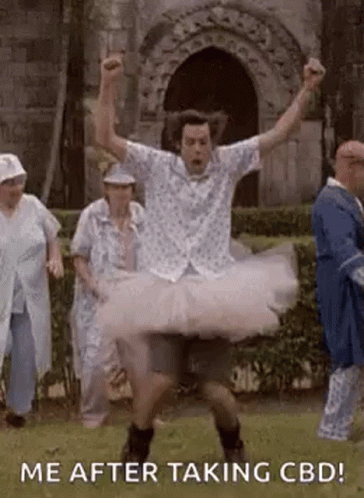- 🐷 WUPPLES® Health
- Posts
- CBD and Cannabis: How Much Should You Take?
CBD and Cannabis: How Much Should You Take?
CBD for Beginners (2 of 7)
Hi there,
In yesterday’s email, we discussed what CBD does.
Today, we’ll look at how much CBD and cannabis you should be
taking based on your personal needs.
It’s pretty easy to experience medical benefits from
cannabis — a puff or two of THC-rich flower should do
the trick for most people.
However, smoking marijuana isn’t the “be-all and end-all”
of cannabis therapeutics. You can experience the benefits
of cannabis in many ways, and lots of them aren’t even
intoxicating.
Unfortunately, not all physicians know enough about
cannabis to be comfortable prescribing it.
In fact, many doctors never learn about cannabis in
medical school!
According to a 2017 survey, few of them feel qualified to
counsel their patients on cannabis use, dosage, CBD to THC
ratios, which mode of administration to use, or even side
effects.
You’re looking at a wide range of products which have
yet to be standardized, even in states where cannabis
is legal.
So what’s the best way to proceed when recommended dosage
seems to be “all over the map?”
One of the most common myths about cannabis is that you
have to get “high” to feel any therapeutic results.
This just isn’t so.
Ultra-low doses can be extremely effective for symptom relief.
A 2005 report in Nature reported that a low dose of oral
THC (1 milligram per day) resulted in “significant inhibition
of disease progression” in an animal study of hardening of
the arteries (atherosclerosis).
Of course, we need more human studies to see which doses
are effective for which conditions, but the practice of
micro-dosing is becoming more popular for those who want
the medical benefits of cannabis without the “high.”
You can obtain cannabis in the form of concentrated oil
extracts, sublingual sprays, tinctures, edibles, gel capsules,
or topical creams. It’s pretty easy to find a low dose that
still relieves your symptoms.
There are basically three types of resin-rich cannabis
products:
1. Type 1 (THC-dominant), which has high THC and low CBD
and is used for recreation.
2. Type 2 (THC & CBD), which has mixed amounts of each.
It’s intoxicating but not as “edgy” as Type 1.
3. Type 3 (CBD-dominant), which has high CBD and low THC
and gives you a non-euphoric relief of symptoms.
Thus, you can see, a greater ratio of CBD to THC means less
“high” and tighter control of your symptoms.
Today’s cannabis patients have the option of healing without
the “high.”
So what’s the appropriate dosage for these types?
The adage “start low and go slow” is appropriate here.
In general (and with THC titration in particular), you want
to start out with the lowest possible dose and work your way
up until you attain symptom relief.
As a general rule, Type 3 (CBD-dominant) cannabis won’t make
you feel “stoned,” but full-spectrum CBD-rich cannabis oil
is effective at much lower doses than a CBD isolate.
Also remember that with high doses of CBD isolate, drug
interactions are more common.
Tomorrow, we’ll look at Cannabis vs. hemp oil.
Until then,
🐷 WUPPLES®
P.S. Like 🐷 WUPPLES® tips & tricks? (share with friends...thanks!)
Win 🐷 WUPPLES® Bronze, Silver & Gold Ads!
You can win free ads for referring friends & family to our newsletter 👇
50 referrals - 🐷 WUPPLES® Bronze ad ($60.83 value)
150 referrals - 🐷 WUPPLES® Silver ad ($91.25 value)
350 referrals - 🐷 WUPPLES® Gold ad ($182.50 value)
{{rp_personalized_text}}
Copy and paste this link: {{rp_refer_url}}



Reply